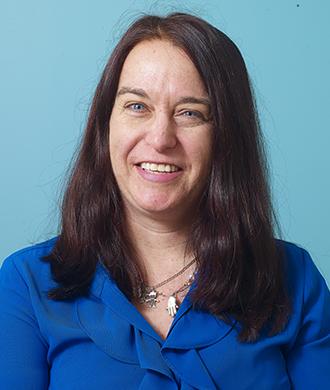Lee E.
Wachtel
,
MD
Breadcrumb
Home Patient Care Faculty & Leadership Lee E. Wachtel , MD
707 N. Broadway
Baltimore, MD 21205
United States
About
Lee E. Wachtel, MD, is the medical director and an attending child psychiatrist of the Neurobehavioral Unit at the Kennedy Krieger Institute. She also directs consultation-liaison psychiatry services for the Rehabilitative Unit. She is a professor in the Department of Child and Adolescent Psychiatry at the Johns Hopkins University School of Medicine.
Education
Dr. Wachtel received her undergraduate degree in Romance Languages and Literatures from Princeton University, with a major in French Language and Literature. In 1993, she graduated summa cum laude as a member of Phi Beta Kappa. She received her medical degree from the Johns Hopkins University School of Medicine in Baltimore, MD in 1998. She completed general psychiatry training at the Karl Menninger School of Psychiatry in Topeka, KS, and at the University of Maryland/Sheppard Pratt psychiatry residency training program in Baltimore, where she also completed a fellowship in child and adolescent psychiatry. She joined the Kennedy Krieger Institute in 2003 as a medical staff member and attending psychiatrist and became the medical director of the neurobehavioral unit in 2004.
Dr. Wachtel is licensed by the state of Maryland as a physician and surgeon, and is board-certified in child, adolescent and adult psychiatry. She is a member of the Kennedy Krieger Institute's Pharmacy and Therapeutics Committee.
Research
Dr. Wachtel’s recent research has focused largely on CHARGE syndrome, a genetic pattern of birth defects that can cause extensive medical and behavioral difficulties. She is currently studying the behavioral phenotype in CHARGE syndrome, including the review of multiple cases of children with CHARGE syndrome treated for severe behavioral disturbance, as well as a review of psychotropic medications prescribed nationally to children with CHARGE.
In addition, Dr. Wachtel is investigating the intriguing concomitance of autism and catatonia, a neurobiological condition characterized by motor, speech and behavioral abnormalities. Traditionally associated with mood and psychotic disorders, catatonic symptoms may occur in up to 17 percent of patients with autism, and necessitate rapid recognition and treatment. Dr. Wachtel is particularly interested in the role of electroconvulsive therapy (ECT) in the resolution of catatonia in autism.
Dr. Wachtel is also pursuing -- with colleagues at Kennedy Krieger Institute -- the combined usage of psychopharmacological and behavioral treatment modalities in the resolution of severe problem behaviors, such as self-injury and aggression, in children and adults with various forms of developmental disabilities.
Related Links
Elsevier Fingerprint Engine Profile for Lee Wachtel
Research Publications
Yap JL, Wachtel LE, Ahn ES, Sanz JH, Slomine BS, Pidcock FS (2012). Treatment of cerebellar cognitive affective syndrome with aripiprazole. J Pediatr Rehabil Med. 5(3), 233-8.
Wachtel LE, Dhossche DM, Kellner CH (2011). When is electroconvulsive therapy appropriate for children and adolescents? Med Hypotheses. 76(3), 395-9.
Wachtel LE, Jaffe R, Kellner CH (2011). Electroconvulsive therapy for psychotropic-refractory bipolar affective disorder and severe self-injury and aggression in an 11-year-old autistic boy. Eur Child Adolesc Psychiatry. 20(3), 147-52.
Wachtel LE, Crawford TO, Dhossche DM, Reti IM (2010). Electroconvulsive therapy for pediatric malignant catatonia with cerebellar dysgenesis. Pediatr Neurol. 43(6), 427-30.
Wachtel LE, Dhossche DM (2010). Self-injury in autism as an alternate sign of catatonia: implications for electroconvulsive therapy. Med Hypotheses. 75(1), 111-4.
Wachtel LE, Baranano K, Reti IM (2010). Electroconvulsive therapy for catatonia in a boy with hydrocephalus and an arachnoid cyst. Pediatr Neurol. 43(1), 73-5.
Wachtel LE, Hermida A, Dhossche DM (2010). Maintenance electroconvulsive therapy in autistic catatonia: a case series review. Prog Neuropsychopharmacol Biol Psychiatry. 34(4), 581-7.
Wachtel LE, Contrucci-Kuhn SA, Griffin M, Thompson A, Dhossche DM, Reti IM (2009). ECT for self-injury in an autistic boy. Eur Child Adolesc Psychiatry. 18(7), 458-63.
Wachtel LE, Kahng S, Dhossche DM, Cascella N, Reti IM (2008). ECT for catatonia in an autistic girl. Am J Psychiatry. 165(3), 329-33.
Wachtel LE, Hagopian LP (2006). Psychopharmacology and applied behavioral analysis: tandem treatment of severe problem behaviors in intellectual disability and a case series. Isr J Psychiatry Relat Sci. 43(4), 265-74.
